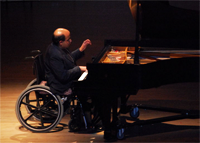"Music... to Cure or Disable:" Therapy for Whom?
DOI:
https://doi.org/10.15845/voices.v14i3.793Palabras clave:
disability, selfhood, music therapy, Disability Studies in Music, reflexivity, accessibility, performanceResumen
This article responds to two intertwined questions: :“What is the role of a Disability Studies perspective within music therapy?” And: “What is the role of music therapy from a Disability Studies perspective?” Exploring some of the congruities and tensions that have emerged in recent years between music therapy, and the burgeoning field of Disability Studies in Music (Lubet, 2004 & 2010; Straus, 2006 & 2011; Straus & Lerner, 2006), I argue that both Disability Studies in Music, and music therapy, can benefit from greater acknowledgement of music's capacity to constrain and enable the human body,in complicated ways. The approach taken in this article imagines music therapy as a a reciprocal encounter in which diagnoses and intervention are replaced by a spirit of collaborative learning. The article pushes music therapy towards the idea of ability and disability as bodily performances (Sandahl & Auslander, 2005; Straus, 2011), rather than either exalted or pathological states of being, and suggests that in taking such a perspective as a point of departure, both music therapy and Disability Studies in Music will find new pathways between their respective theoretical and methodological environments.
Descargas
Publicado
2014-10-20
Cómo citar
Honisch, S. (2014). "Music. to Cure or Disable:" Therapy for Whom?. Voices: A World Forum for Music Therapy, 14(3). https://doi.org/10.15845/voices.v14i3.793
Número
Sección
Invited Submission - Special Issue
Licencia
Articles published prior to 2019 are subject to the following license, see: https://voices.no/index.php/voices/copyright

